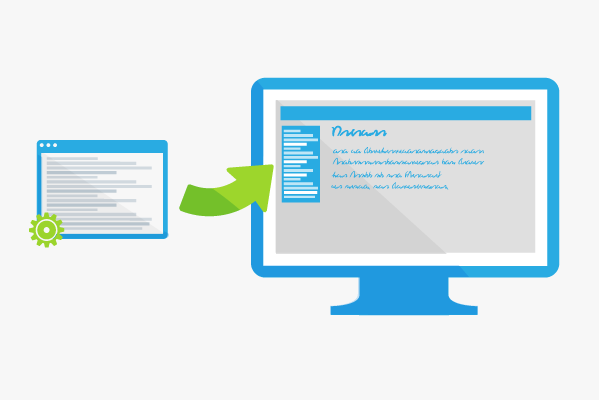Article Directory
An article directory is a webpage that primarily hosts a collection of editorial articles which are sorted by category (see: directory). Users can integrate their articles (usually as text) in an article directory by means of a web form. Article directory services can be free or paid services. Article directories were used for a long time in link building.
Background
When the Internet increasingly opened up for private users at the end of the 1990s, it was often difficult to find relevant information about specific subjects. One reason was less efficient web search functions as compared to today. Back then it was as not that easy to obtain relevant search results using Google search for a particular keyword. In order to meet the information needs of users and to close a gap to popular search engines, successive article directories were established which answered questions on matters within a virtually unlimited subject area.
Due to a lack of competition, many article directories initially got very good rankings on the SERP with their posts. At the same time the directories became interesting for advertisers and a lucrative business model for their operators that paid for itself quickly. Moreover, directories were interesting especially for SEOs who placed articles with relevant and strong backlinks there. Ever since the Penguin update, the importance of article directories for link building is close to zero.
How it works
Article directories list, as the name suggests, different postings on various topics. There are even special directories for specific topics such as health or finances, but most article directories are almost unlimited in choice of topics.
Depending on the directory, articles of at least 300 words can be posted by registered users. They can also add one or two external links and an image. After a review by an editorial team, the submitted articles are eventually approved and released. In rare cases, article directories may publish articles without prior checking.
Posting articles is free per the business model of most article directories. Consequently, the operators receive free content and give in return one or two backlinks. Ads are placed next to content, and in the optimum scenario profit can be derived from it, but minimally server costs can be covered.
Criticism
The advantages and great disadvantages of big article directories were and are the quality standards. After article directories were used as backlink sources the quality of posts has immensely dropped. Since, in principle, anybody can publish their material, there are no high standards of linguistics and content quality, even when editors of directories first check the contents before publishing it. The online encyclopedia Wikipedia took a different route. Mutual control is employed here. Although many posts do not meet scientific standards, the community ensures that the quality is reasonably maintained.
Importance for search engine optimization
In recent years, article directories have been used as an easy way to generate backlinks. In many directories you are able to backlink to the original source of the content as part of posting an article. Therefore, a variety of article directories were launched without paying attention to quality and only with the primary goal of producing backlinks and earning money with advertising.
Google was aware of this development as a dirty link building method. Some backlinks from article directories which had content farm character were devalued and many article directories were banned from the index with the Penguin update in 2012. A logical reason for the assessment of article directories as link farms were certainly in the very disproportionate ratio of incoming and outgoing backlinks. Nowadays, having an editorial article in such a directory is not important from an SEO perspective.
Matt Cutts even advises against backlink building through article directories in an official video.[1]
Ideas for a new approach
The approach of an independent source of knowledge that is nourished by voluntary contributors was and is certainly interesting. Many users are searching the web for reputable alternatives to Wikipedia & Co. That such an adviser with articles can work without degenerating into a pure backlink farm can be seen from the numerous information websites on health and home improvement that get their revenue through advertising, banners, etc. These in-depth articles show that high-quality posts are beneficial for ranking on the SERP.
References
- ↑ Matt Cutts about Article Directories youtu.be Accessed on 03/17/2014

